ETH News
All stories that have been tagged with Animal experiments
Vice President of Research moving from ETH Zurich to Singapore

Vice President of Research Christian Wolfrum is leaving ETH as of 1 July 2025 to take up a new academic challenge: he is to become Deputy President and Provost responsible for all academic matters at Nanyang Technological University, Singapore (NTU Singapore).
Cause of the yo-yo effect deciphered
Press release

Researchers at ETH Zurich have discovered a mechanism behind the yo-yo effect: fat cells have a memory that is based on epigenetics.
Behavioural analysis in mice: more precise results despite fewer animals
- Homehero
- News

Researchers at ETH Zurich are utilising artificial intelligence to analyse the behaviour of laboratory mice more efficiently and reduce the number of animals in experiments.
Operating from 9,300km away
Press release

Researchers at ETH Zurich and The Chinese University of Hong Kong have succeeded for the first time in using remote control to perform a magnetic endoscopy on a live pig. The researchers controlled the probe from Zurich while the animal was on the operating table in Hong Kong.
Beige fat cells with a “Sisyphus mechanism”
News

A new class of fat cells makes people healthier. The cells consume energy and produce heat through seemingly pointless biochemical reactions.
Sport or snack? How our brain decides
News

The brain chemical orexin is crucial when we choose between sport and the tasty temptations that beckon everywhere we turn. This research finding could also help people who find it difficult to motivate themselves to exercise.
Preventing cancer cells from colonising the liver
News

Researchers at ETH Zurich have uncovered how colorectal cancer cells colonise the liver. Their findings could open up new ways to suppress this process in the future.
A hydrogel implant to treat endometriosis
News

Researchers from ETH Zurich and Empa have developed a hydrogel implant that can help prevent endometriosis, a condition that affects a great many women. This innovation also acts as a contraceptive.
Researchers identify key differences in inner workings of immune cells
News

Using machine-learning methods, researchers at ETH Zurich have shown that more than half of all killer T cells exhibit nuclear invaginations, or folds in the cell’s nuclear envelope. Thanks to this particular cellular architecture, such cells are able to mount a faster and stronger response to pathogens.
Mini-organs with big potential
Globe magazine
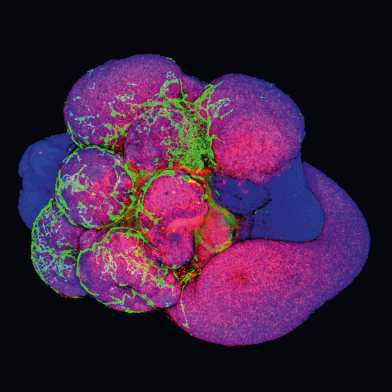
Organoids grown from human stem cells can help provide answers to important medical questions. In a partnership that looks set to profit both sides, ETH professor Barbara Treutlein has teamed up with pharma giant Roche to advance research in this area.
What can bulls tell us about men?
News
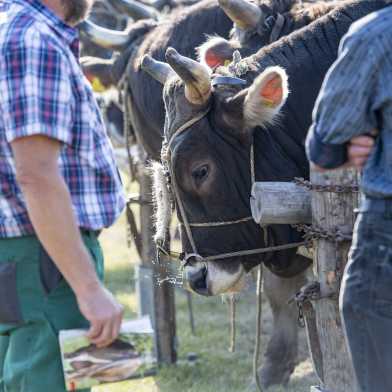
Researchers have found genes in the reproductive organs of bulls that influence fertility. The findings can be transferred to humans, as these genes are also present in men.
New agent blocks stress response
News

If the body’s natural stress response gets knocked off balance, it can result in physical and mental health disorders. Researchers at ETH Zurich have developed an agent capable of selectively inhibiting this response.
How wounds heal – and cancers grow
Globe magazine

There are some striking parallels between how skin wounds heal and how malignant tumours grow. Cell culture can help us understand the mechanisms involved – but animal testing still has a role to play.
Halting a malformation of the heart
News
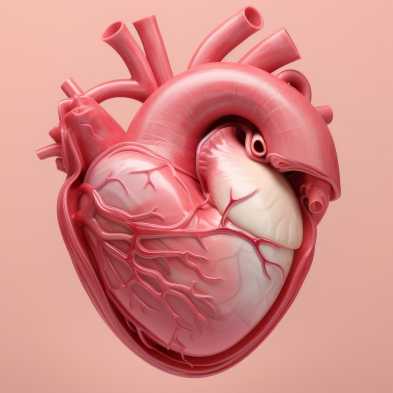
Researchers at ETH Zurich have now shown that a previously unknown protein plays a key role in a congenital malformation of the heart. Their findings point the way towards new treatment options.
Genetically modifying individual cells in animals
News
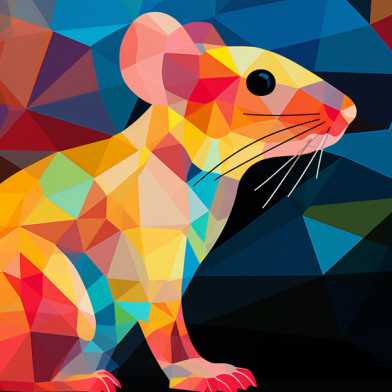
Researchers at ETH Zurich have developed a method that lets them genetically modify each cell differently in animals. This allows them to study in a single experiment what used to require many animal experiments. Using the new method, the researchers have discovered genes that are relevant for a severe rare genetic disorder.
Cells with an ear for music release insulin
News
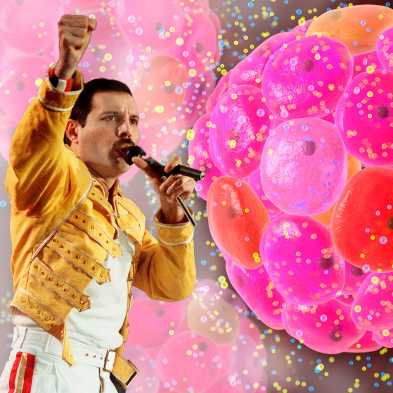
"We will rock you": ETH Zurich researchers are developing a gene switch that triggers insulin release in designer cells by playing certain rock and pop songs.
Building muscle in the lab
- Homehero
- News
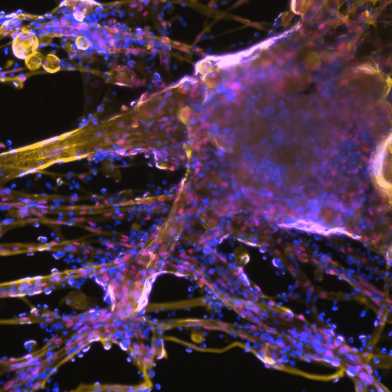
A new method allows large quantities of muscle stem cells to be safely obtained in cell culture. This provides a potential for treating patients with muscle diseases – and for those who would like to eat meat, but don’t want to kill animals.
A new space for clinical research
- Press release
- News
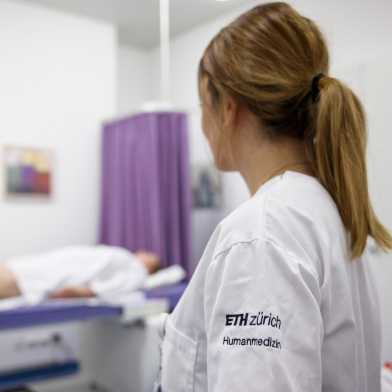
Kantonsspital Baden (KSB) and ETH Zurich have been working together since 2017, mainly in teaching initially, but increasingly in clinical research. Now three ETH professors are moving into new premises on the hospital’s healthcare campus. Together, they want to make findings from basic research available for the benefit of patients.
Generating power with blood sugar
- Press release
- News
- Homepage
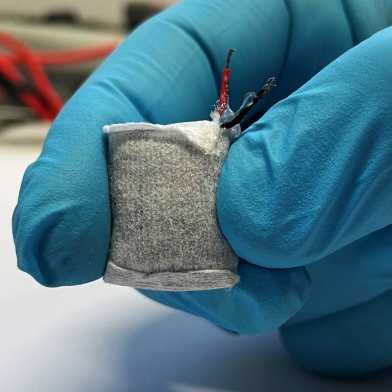
A fuel cell under the skin that converts blood sugar from the body into electrical energy sounds like science fiction. Yet it works perfectly, as an ETH Zurich research team led by Martin Fussenegger, Professor of Biotechnology and Bioengineering, has shown.
The legacy of trauma
Globe magazine

Emotional trauma can have far-reaching ripple effects and may even reverberate across generations. Professors Isabelle Mansuy and Katharina Gapp study how the effects of trauma can be inherited through epigenetic mechanisms.
Achieving a better understanding of how the blood-brain barrier works
- News
- Homepage
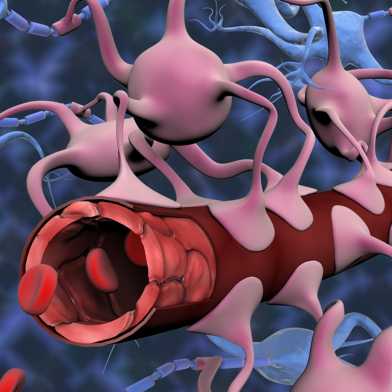
Up to now, the use of models to research the barrier that separates the circulatory from the nervous system has proven to be either limited or extremely complicated. Researchers at ETH Zurich have developed a more realistic model that can also be used to better explore new treatments for brain tumours.
Mapping human brain development
News
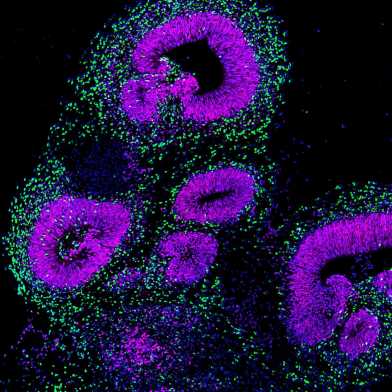
Researchers at ETH Zurich are growing human brain-like tissue from stem cells and are then mapping the cell types that occur in different brain regions and the genes that regulate their development.
Bacteria with recording function capture gut health status
News
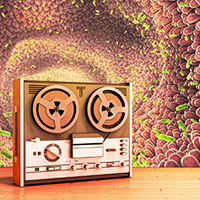
Researchers from ETH Zurich, University Hospital of Bern and the University of Bern have equipped gut bacteria with data logger functionality as a way of monitoring which genes are active in the bacteria. These microorganisms could one day offer a noninvasive means of diagnosing disease or assessing the impact of a diet on health.
Automated analysis of animal behaviour
News
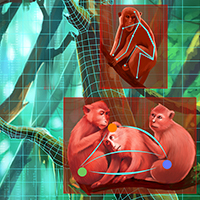
Researchers have developed a new method that uses artificial intelligence to analyse animal behaviour. This opens the door to longer-term in-depth studies in the field of behavioural science – while also helping to improve animal welfare. The method is already being tested at Zurich Zoo.
Ubiquitous nutrients suppress appetite and promote movement
News

In experiments on mice, researchers at ETH Zurich show that non-essential amino acids act as appetite suppressants and promote the urge to move. Their research provides insight into the neural mechanism that controls this behaviour.
Help rather than hinder
Zukunftsblog

Johannes Bohacek explains why it’s misleading to think we can completely replace animal testing with alternative methods, and why we should lower rather than raise the hurdles to research.
The vital need for animal testing
News
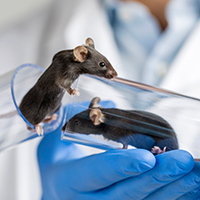
ETH Zurich and the other Swiss universities are committed to reducing the stress and suffering experienced by laboratory animals. However, an outright ban on animal testing – being put to the vote in a popular initiative this coming February – would put an end to progress in medical research.
We should talk about animal testing
Zukunftsblog

It’s a good thing if animal testing is widely discussed in society, says Detlef Günther, but it’s important that these discussions are fair and fact-based.
“I don’t like dogmas much”
News

These days, the cause of death in cancer patients often isn’t the primary tumour, but metastases. With his research, biochemist Nicola Aceto has found a new way to prevent the formation of such secondary tumours. To achieve this, the Latsis laureate had to repeatedly fight against the prevailing wisdom.
Green tea catechins promote oxidative stress
News

Green tea is seen as healthy and promotes a longer life supposedly due to its high level of antioxidants. Researchers at ETH Zurich have now cast doubt on previous assumptions about how these ingredients work.
The man setting out to reduce methane produced by animals
News
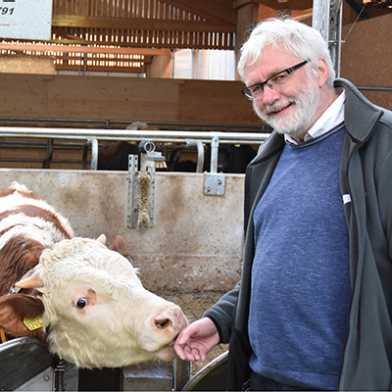
Michael Kreuzer, Professor of Animal Nutrition and pioneer in the prevention of greenhouse gas emissions from livestock, is retiring after 27 years at ETH Zurich.
Embryonic development in slow motion
News

Roe deer are among the few mammals whose embryos go into a particularly long period of dormancy. Using modern molecular methods, ETH Zurich researchers have shown for the first time exactly what happens to the embryo during this phase. They have identified signals that control the embryo`s awakening.
Getting oxygenated blood to exercising muscles
News
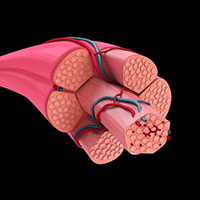
ETH Zurich Professor Katrien De Bock and her team have discovered a certain type of blood vessel cell in muscles that multiplies rapidly upon exercise, thereby forming new blood vessels. Researchers can use this to find novel therapies for vascular disorders of the muscle.
Toxicity testing on the placenta and embryo
News
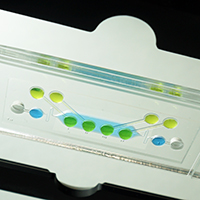
Researchers at ETH Zurich have developed a cell culture test to detect substances that are directly or indirectly harmful to embryos. Based on an existing test used for developing new drugs and chemicals, the augmented version is designed to help reduce the number of animal experiments.
A deep dive into the brain
News
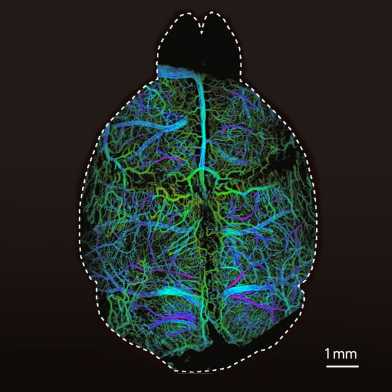
Researchers from ETH Zurich and University of Zurich have developed a new microscopy technique that lights up the brain with high resolution imagery. This allows neuroscientists to study brain functions and ailments more closely and non-invasively. ?
What the new pangenome reveals about bovine genes
News
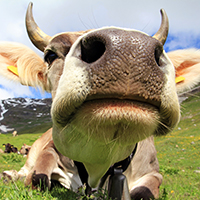
When researchers at ETH Zurich compared the reference genomes between several breeds of domestic cattle and closely related wild cattle, they discovered genes with previously unknown functions.
How trauma shapes our brain cells
News
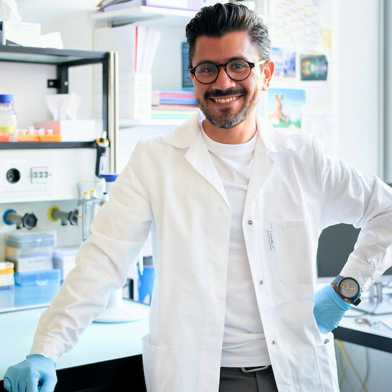
ETH Fellow Rodrigo Arzate-Mejia is studying how traumatic life experiences affect the brain, with a focus on epigenetic changes in brain cells. ?
Animal experiments still play a key role
Zukunftsblog

Without animal experiments there would be no COVID-19 vaccine: animal testing is essential for medical research. A ban on testing – even a gradual phase-out – would be extremely damaging for research policy, writes Detlef Günther.
Towards more fish-friendly hydropower plants
News

Over the course of the EU project “FIThydro”, research and industry partners studied the ecological impact of hydropower plants. ETH Zurich’s Laboratory of Hydraulics, Hydrology and Glaciology (VAW) has developed a protection and guidance system that can help migratory fish to safely bypass hydropower turbines.
Microelectronics shed light on neural behaviour
News
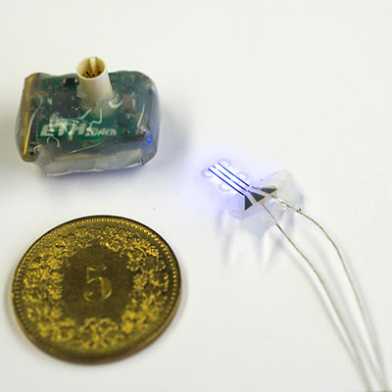
Researchers at ETH Zurich – in collaboration with colleagues from EPFL in Lausanne and Harvard Medical School – have developed a system that allows them to optically stimulate individual nerve fibres in living mice. Through this process, they have demonstrated that the nervous system has a direct influence on the immune system.
Handing over the keys at Früebüel
News

Despite the coronavirus lockdown, the renovation and extension of Früebüel research station in Walchwil (Canton of Zug) was completed nearly on schedule. AgroVet–Strickhof, a research cooperative supported by ETH Zurich, the University of Zurich and Strickhof, now has state-of-the-art research and higher education facilities at its four locations.
Microbiology offers relief for “colicky” babies
News
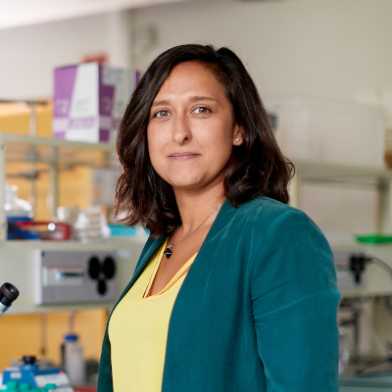
Vanesa Rocha Martin is studying how bacteria can be used to treat infant colic. As part of her Pioneer Fellowship, she is now turning her findings into a first-line therapy with a proven effect.
ETH researchers deconstruct tissue repair
News

ETH researchers have deconstructed the mechanisms that control wound healing and scar formation in more detail. To this end, biologists and engineers have developed a new method that allows the biomechanical properties of the healing tissue to be measured in vivo for the first time.
A new substance prevents vascular calcification
News
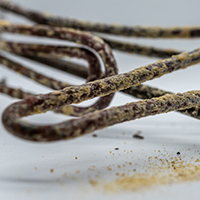
The calcification of blood vessels and other soft tissues is problematic. Researchers at ETH Zurich and ETH spin-off Inositec have discovered a substance that prevents vascular calcification.
Zebra finches learn their courtship song efficiently
News
Zebra finches are very efficient at learning their courtship songs, as researchers from ETH Zurich and the University of Zurich have shown. In the morning, the birds remember the positive learning progress of the previous day, but forget the failures overnight.
World Premiere in Zurich: Machine keeps human livers alive for one week
Press release
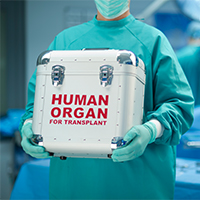
Researchers from the University Hospital and ETH Zurich have developed a machine that repairs injured human livers and keep them alive outside the body for one week. This breakthrough may increase the number of available organs for transplantation saving many lives of patients with severe liver diseases or cancer.
Bandage material helps stop bleeding without adhering to the wound
News

Researchers from ETH Zurich and the National University of Singapore have developed a new kind of bandage that helps blood to clot and doesn’t stick to the wound. This marks the first time that scientists have combined both properties in one material.
Protection for pacemakers
News
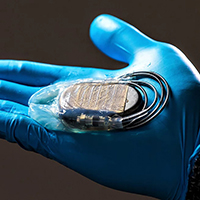
A protective membrane for cardiac pacemakers developed at ETH Zurich has proved successful in animal trials in reducing the undesirable build-up of fibrotic tissue around the implant. The next step is to test the protective membrane in patients.